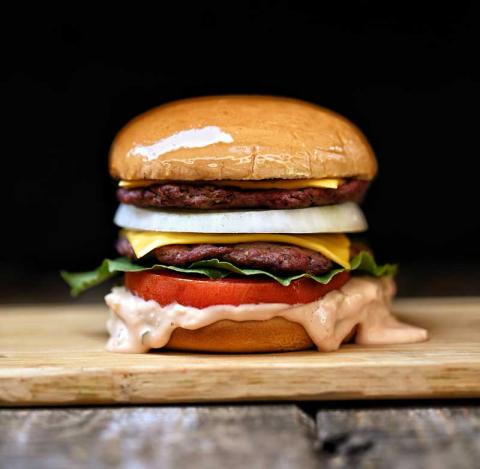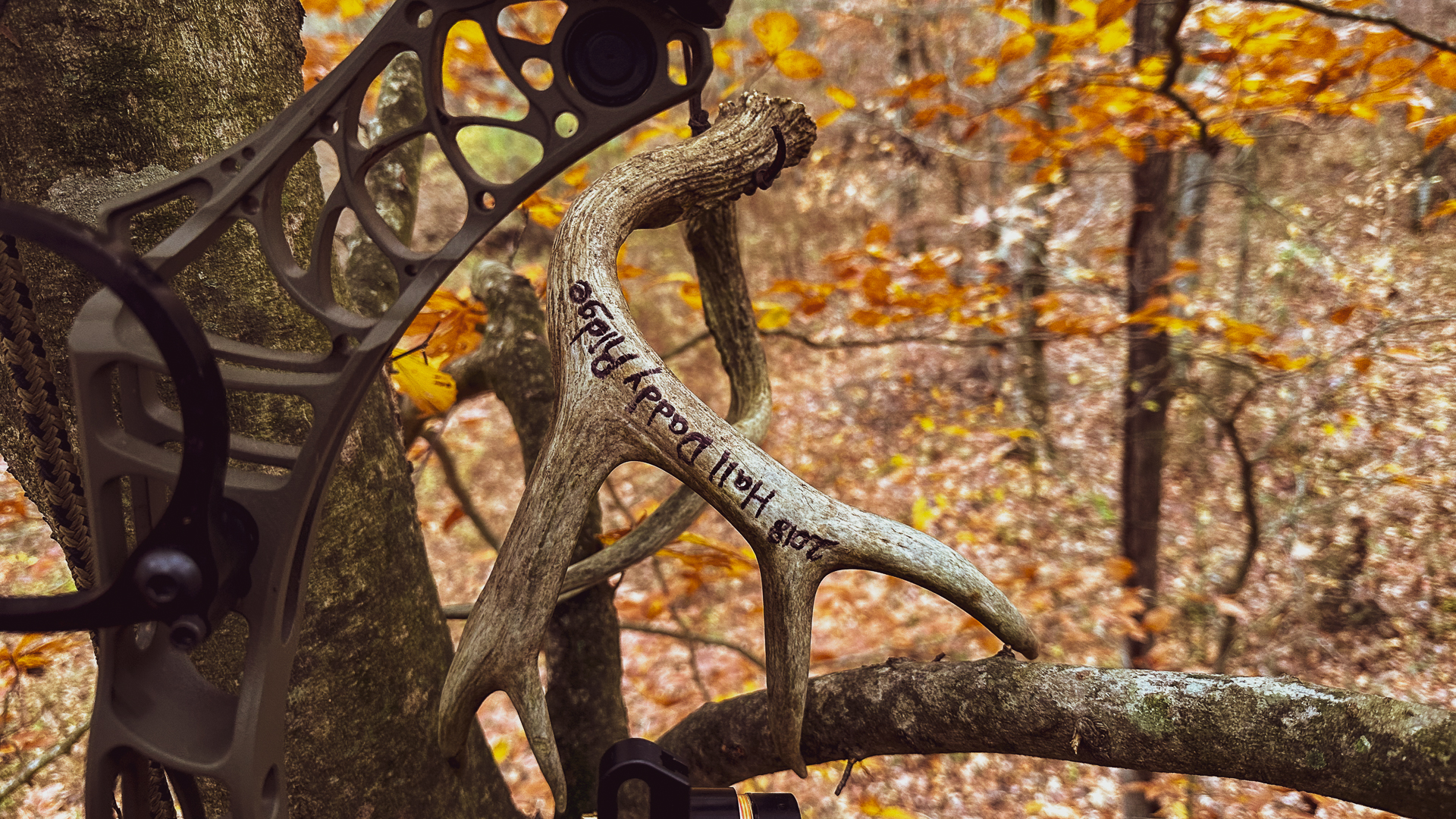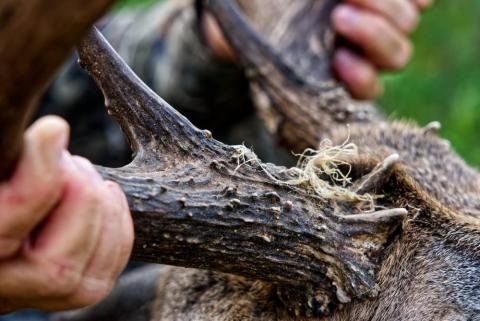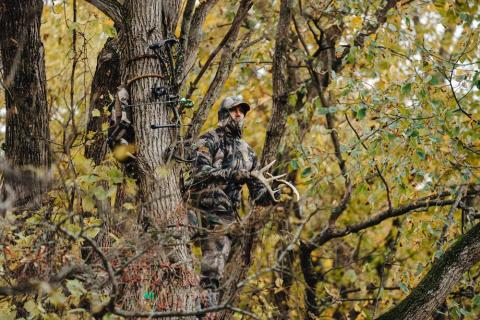The rich flavor of wild game is one of the reasons that so many hunters enjoy cooking their kill. Game is also some of the healthiest meat you can eat, with its low-fat content and none of the chemical additives often found in farmed animals. However, it can be challenging to cook.
So, to help you make the most of your game meat, here are the top 10 cooking mistakes to avoid.
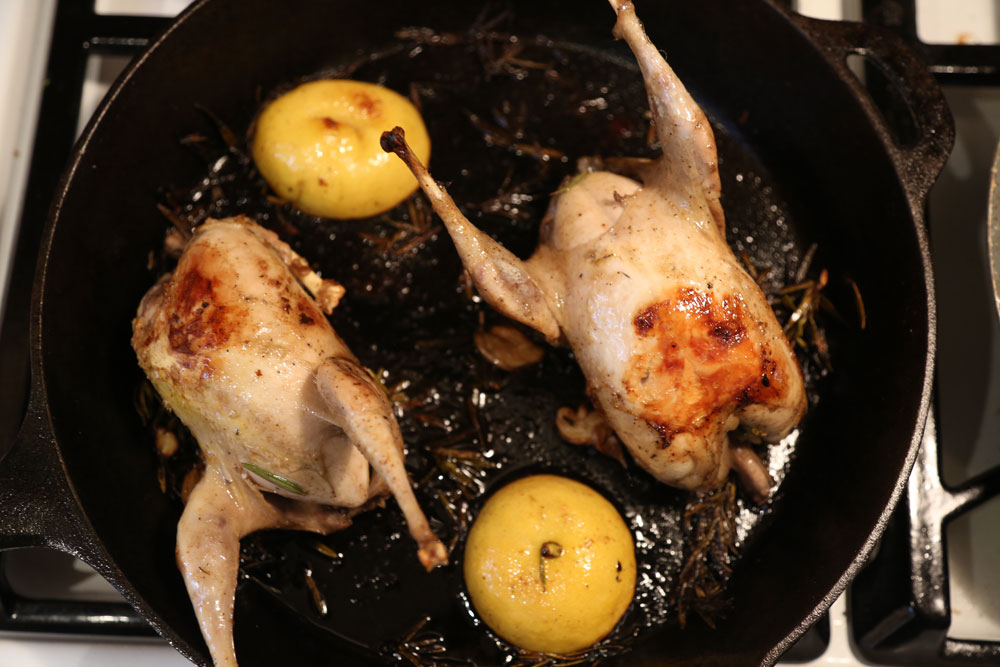
1. Poor Shooting
Proper wild game cooking prep begins before you enter the kitchen. A poor shot may mean ruining a prime cut of meat or tainting the flavor of the meat as you track the stressed animal.
Practice makes perfect, so head down to the gun range whenever possible to improve your accuracy and gun safety for a more successful hunt and better tasting wild game meat.
2. Choosing the Wrong Cut for the Wrong Recipe
Different parts of the animal are better suited to specific cooking methods due to the composition of fat, muscle, and connective tissue and how the animal uses these muscles.
Learning about the different cuts of meat on your wild game can help you better understand which parts require slow cooking and which cuts fare well on the grill. Cuts like the shank have lots of connective tissue that needs to be broken down slowly with braising, while the lean loin only needs a few minutes on the grill.
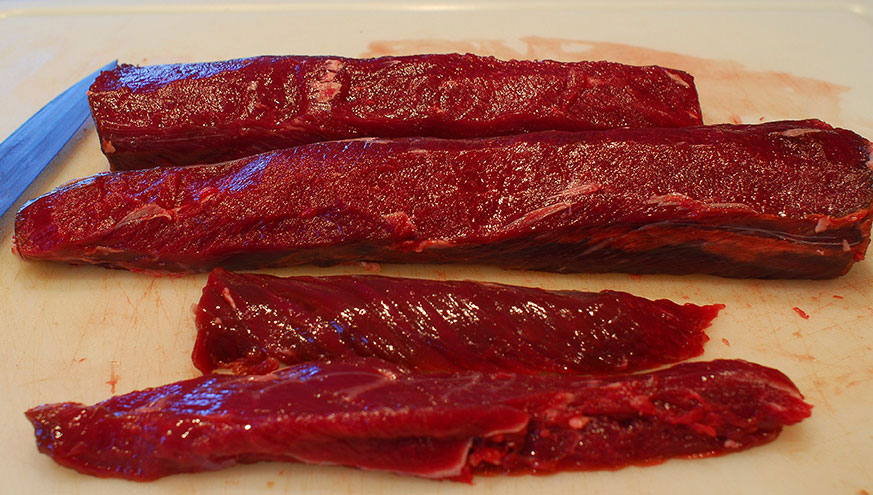
3. Throwing Away the Organs
The idea of consuming organ meats can be off-putting to many people. However, wild game organs such as the heart or liver are some of the most delicious parts of the animal and can impart a complex flavor when incorporated into dishes. Try adding chopped deer liver when you cook venison shepherd's pie /our-obsession/blogs/recipes/venison-shepherds-pie or quickly searing thin slices of heart with lemon and shallots for a delicious entree.
4. Not Aging the Meat
Aging the meat intensifies the flavor by transforming proteins to umami-rich amino-acids and breaking down glycogen into simple sugars. As the enzymes breakdown the cell molecules, the meat is tenderized and becomes more flavorful.
If you have consistently cool temperatures, you can hang your kill in the garage for 2-4 days. However, if you can’t be sure of the temperature, butcher the carcass and get it into cooler temperatures as soon as possible.
Alternatively, if you have an extra fridge, you can remove the racks and hang the carcass inside, making sure not to let it touch the sides. You can age meat inside a fridge for 7-10 days before butchering and freezing.
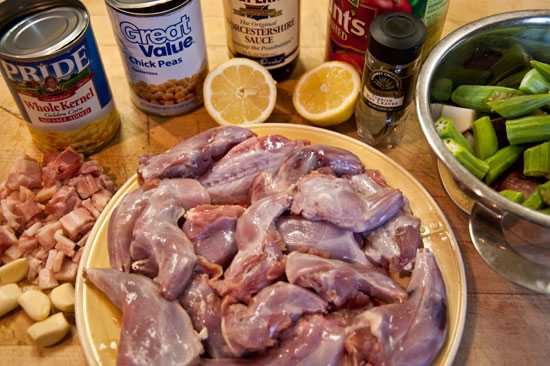 5. Not Getting Meat Up to Temperature
5. Not Getting Meat Up to Temperature
It is very easy to overcook wild game as it has less fat than domestically farmed meat. The more muscular the meat, the more you have to hover over it while cooking, consistently basting it to avoid it drying out.
Most wild game meats, such as venison and duck, are intensely flavorful when served medium-rare or rare, whereas lighter meat like wild hog should be brined because it has to cook to 160 degrees. A meat thermometer is an essential tool for cooking wild game to perfection. 140-degrees is considered the perfect internal temperature for darker cuts of meat. But, like all meats, it will keep on cooking after you have removed it from the heat. Take it out of the pan at approximately 135-degrees to avoid overcooking.
6. Not Brining or Marinating Meat
Many people complain of wild game meat tasting too “gamey.” To combat this and help balance your game dishes, brine or marinate your meat before cooking.
Brining is the process of soaking the wild game in a salt solution to draw out some of the blood and give you a juicier cut of meat. You can flavor the brine with aromatics like bay leaves, juniper berries, and whole peppercorns to impart some extra flavor. Rest the meat after brining to allow the moisture to soak back into the meat fibers.
A marinade is an excellent way to add flavor and tenderize meat. The acid in the marinade breaks down tough proteins in the connective tissue and is ideal when preparing cuts like the shank or shoulder. Before marinating, keep the meat uncovered over a sieve in the refrigerator overnight to drain the blood. When you are ready to marinade your wild game, use a marinade that contains fat to ensure the flavor is distributed evenly. The fat slowly burns off during cooking.
7. Cooking Birds Whole
No matter which type of wild game bird you are cooking, breaking down the bird allows you to cook each part to perfection, and you run less risk of overcooked, dry breast meat, which often happens when preparing whole birds.
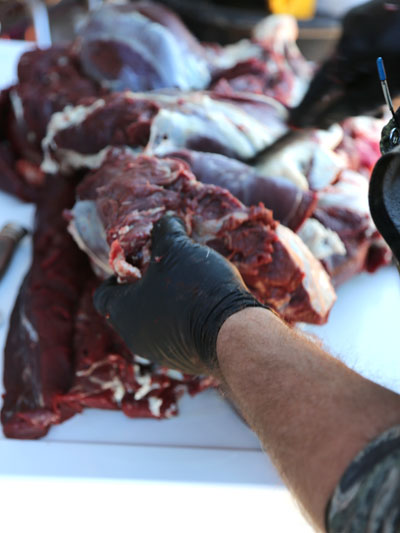 Removing the breasts and legs from the birds also leaves you with a carcass perfect for making rich game stock, while the individual pieces can be used in different dishes to give you a wider variety of recipes.
Removing the breasts and legs from the birds also leaves you with a carcass perfect for making rich game stock, while the individual pieces can be used in different dishes to give you a wider variety of recipes.
8. Not Removing Skin and Fat
If birds are your game of choice, there are a couple of extra steps you need to do to prepare your birds before cooking. Cooking wild game birds, especially diving birds, is not the same as cooking a domestic duck breast.
The skin and fat on these birds tend to have a foul, muddy flavor that taints the meat during cooking. Removing the skin and fat from these birds can keep the meat tasting clean and rich. Just remember to add extra butter or oil to the dish to keep the meat from drying out.
9. Overcomplicating Dishes
When it comes to wild game dishes, it is critical to let the ingredients speak for themselves. The game should be the star of the show, so only choose ingredients that complement the flavor of the meat rather than mask it.
10. Being Afraid to Make a Mistake
No one gets it perfect the first time. Being afraid to ruin your fresh game can mean you are less willing to try new and adventurous ways to prepare your meat. It also means you might leave your game inside the freezer for too long and end up with freezer-burned meat.
The only way to get better at cooking wild game is to practice. So, the more game dishes you whip up for family and friends, the better those dishes are going to taste.
Final Word
There is no need to feel overwhelmed about cooking wild game if you properly prepare it beforehand and show it some care and attention during the cooking process. Following these tips can help you earn top wild game chef status with your family and friends!

Need wild game meat for a recipe you've been wanting to try? Check out GameKeeper Butchery. GameKeeper Butchery is dedicated to procuring the finest assortment and highest quality of specialty meats from the United States and around the world. Our commitment is to deliver the safest, freshest and most wholesome products.


















